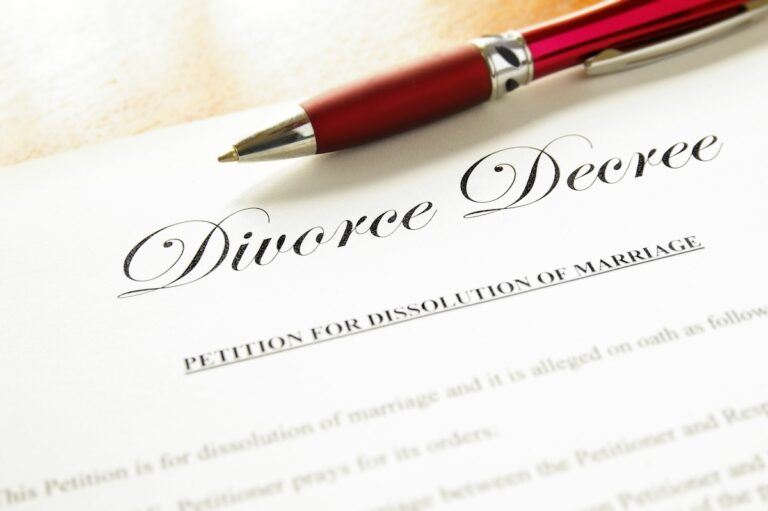Whether you divorced your ex-spouse years ago or just last week, you would have received a divorce decree. In Texas, this document outlines the court’s orders to guide you and your ex as you move forward.
Ideally, you and your former spouse would willingly follow the terms of the divorce decree and avoid major conflicts. But when that doesn’t happen, it becomes necessary to think about enforcing divorce decree orders.
Learn more about how to enforce the original order so that you receive the benefits you are entitled to post-divorce.
The Role of a Texas Divorce Decree
The divorce decree is the court’s order that officially ends your marriage. It also contains orders affecting child custody, visitation rights, property division, and other relevant issues.
The court makes these orders part of your divorce decree after you and your ex agree to them. Alternatively, the court may hear evidence and make its own decisions on these matters.
If your ex frequently violates the order, you may wonder how useful it is to bring each violation to the court’s attention. Before deciding what action to take, it’s a good idea to consider why your former spouse is ignoring the order. Then, you can take the right steps to enforce the order.
Why Your Former Spouse May Violate the Divorce Decree
Your ex may not be willing to follow the order even after you’ve both agreed to them. There are several potential reasons for this, including because your ex:
- Feels the court made the wrong decision
- Believes they were pressured into a settlement agreement
- Thinks you received better treatment from the court than they did
- Regrets having made the concessions they did during mediation
- Is still trying to find ways to control or manipulate you
When your former spouse ignores the order, they rob you of the peace, security, and predictability the decree was meant to provide. Ignoring such behavior might appear to be the easier course to take. However, continuing to ignore your ex’s bad actions will likely only invite more — and more serious — violations.
After a decree is issued, you have the legal right to pursue enforcement.
Protecting Your Rights Through Enforcing a Divorce Decree
When your ex violates the court’s orders in your divorce, you must decide whether enforcing divorce decree orders is the right decision. In many cases involving repeated violations, reporting the behavior and seeking the court’s intervention will be the best course of action.
A court has several tools available when enforcing a previously issued divorce decree. The best tool for your situation will offer the specific protections you need.
For example, if your spouse has put you in a dangerous situation, treating a violation as an act of contempt may be appropriate. Take a closer look at how the court can enforce a decree.
Acts of Contempt
The first method of addressing these violations is to treat them as acts of contempt of court. Under Texas law, a court can fine individuals who violate any of its orders and issue jail time. Being held in contempt carries serious consequences.
However, a fine or jail sanction might not fully address the impact of your ex’s violations. As a result, the court may also consider your former spouse’s defiant behavior when modifying a divorce decree to issue stronger protections in your favor. This step could include changing spousal support orders, child custody and visitation orders, and protective orders.
Child Related Orders
Any violation of the divorce decree could suggest to the court that your ex will not follow other orders relating to child support, child custody, and visitation. As a result, a court may deny any request your ex makes to modify these orders in their favor.
Depending on how serious the violation is, the court may even consider adding additional restrictions against your former spouse.
Protective Orders
Perhaps your ex’s actions are disruptive to your peace and ability to carry on with your life. In this case, the court may enter protective orders that prohibit your ex from continuing with those actions.
Violating these orders could result in your former spouse being charged with a crime and punished accordingly.
Reporting Violations of Your Divorce Decree
A family law attorney can help you prepare the appropriate legal paperwork to bring the violations to the court’s attention. You can help out in the following ways:
- Create a log of when, where, and how your ex violates the divorce decree
- Save text messages, emails, or other communications related to the violation
- Contact your attorney as soon as possible after a violation
- Avoid confronting your ex if you believe this might create a dangerous situation for you
Once your attorney makes the court aware of these violations, there will likely be a court hearing. At this hearing, you may need to testify and tell the court what happened. If so, your attorney will help prepare you for what to expect.
Get the Support You Need With Enforcing Divorce Decree Orders
Enforcing divorce decree orders can be the best move a divorcee can make in Texas. But doing so can be daunting, especially if you and your ex-spouse had a contentious divorce.
Fortunately, you don’t need to face the legal process alone. An experienced family law attorney from Parker & Aguilar can guide you every step of the way and advocate on your behalf.
We serve families throughout Fort Bend County, Brazoria County, Galveston County, and Matagorda County. To learn how we can help you, call our Angleton office at 979-267-7660 or our Sugar Land office at 281-944-5485 to speak with one of our caring attorneys.
We’ll help you decide the right course of action to protect yourself following a divorce.

